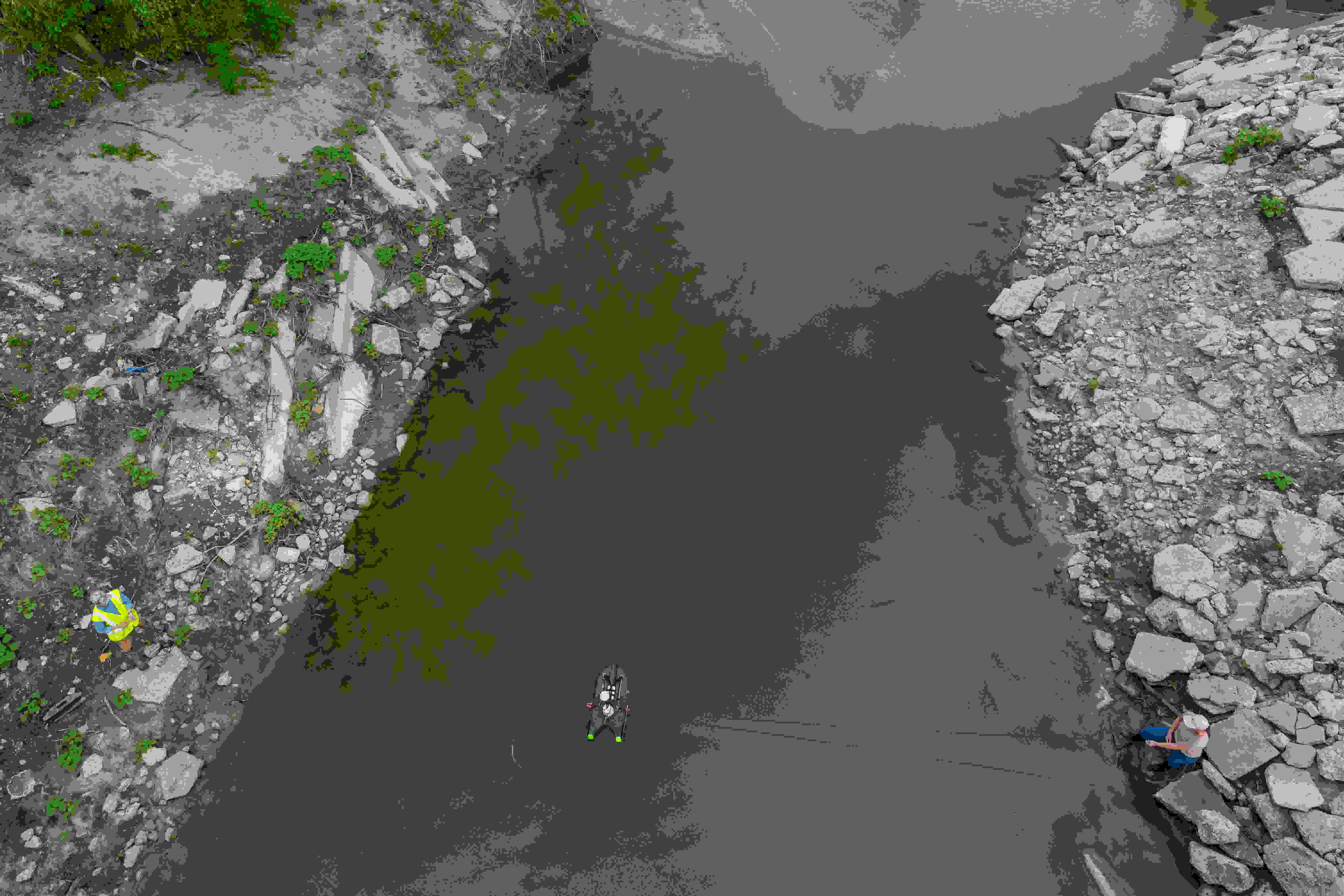TWRI Water Team completing water quality monitoring at Mill Creek. Photo by Michael Miller, Texas A&M AgriLife Communications.
Peer-reviewed publications by Texas Water Resources Institute and Texas A&M AgriLife scientists
Linking watershed nutrient loading to estuary water quality with generalized additive models: Michael P. Schramm, a water research specialist at the Texas Water Research Institute (TWRI), spearheaded this research on estuary water quality in Lavaca Bay, Texas, and how it's affected by freshwater inflow nutrient loads. Changes in inflow conditions seasonally and from year to year impacted the water quality positively and negatively depending on the conditions. The study shows methodological support for using semiparametric models in estuary assessments.
Edge-of-Field Runoff Analysis following Grazing and Silvicultural Best Management Practices in Northeast Texas: Research co-authored by TWRI’s Lucas Gregory, Ph.D., Jason Gerlich, Ed Rhodes, and Stephanie deVilleneuve aims to better understand how BMPs, best management practices, can impact water quality. This research compared runoff from land with BMPs implemented, such as prescribed grazing and silvicultural practices, to runoff from land with conventional practices, such as continuous grazing and natural forest revegetation. This data will help future decision-making when choosing water management practices for specific areas.
Grazing management impacts on ecosystem services under contrasting climatic conditions in Texas and North Dakota: Texas A&M AgriLife researchers JungJin Kim, Ph.D., Srinivasula Ale, Ph.D., W. Richard Teague, Ph.D., and Texas A&M University Department of Ecology and Conservation Biology researcher Urs P. Kreuter, Ph.D., studied the effects of grazing management on an ecosystem's watershed. They studied two watersheds with different climates in Texas and North Dakota to see the differences in the ecosystem services and water catchment in different rangeland watersheds.
Assessing the watershed-scale efforts of tillage management on surface runoff and sediment loss using a Curve Number-precipitation relationship-based approach: Soil management is vital for functions in the soil to complete their ecological processes. Inadequate soil management makes functions such as water infiltration and storage insufficient. This research, conducted by Texas A&M AgriLife researchers Sayantan Samata and Srinivasula Ale, Ph.D., and Soil Health Institute researchers Dianna K. Bagnall, Ph.D., and Cristine L.S. Morgan, Ph.D., investigate the benefits of proper soil management on water quality and watershed availability.
Water-related research and news from universities around Texas
Vertical Flux in a Two-Layer Aquifer System Absent of Aquitard: Co-authored by Texas A&M scientist Hongbin Zhan, Ph.D., this study examines vertical groundwater flux in a two-layer aquifer system. These systems are layered river-basin or reservoir-bank aquifers, and this research identifies the effects on the distribution system in the layers as well as the mass exchange between the layers.
Supplying ecosystem services on US rangelands: Rangelands are an essential ecosystem in the United States as they make up at least 40% of the continental land. This study, co-authored by the Texas A&M scientist David D. Briske, Ph.D. researched environmental and societal effects on rangelands and investigated how their implementation will alter future use of these lands. They researched how this will affect different agricultural sectors and renewable energy technologies.
Resetting of soil compositions by irrigation in urban watersheds: Evidence from Sr isotope variations in Austin, TX: Co-authored by a University of Texas at Austin scientist, this research studied the effects of chemicals and other human interference that change ecosystems in urban environments. This study proved that isotopes found in soil can be used for tracing exact substances and water sources within soil compositions in urban environments.


